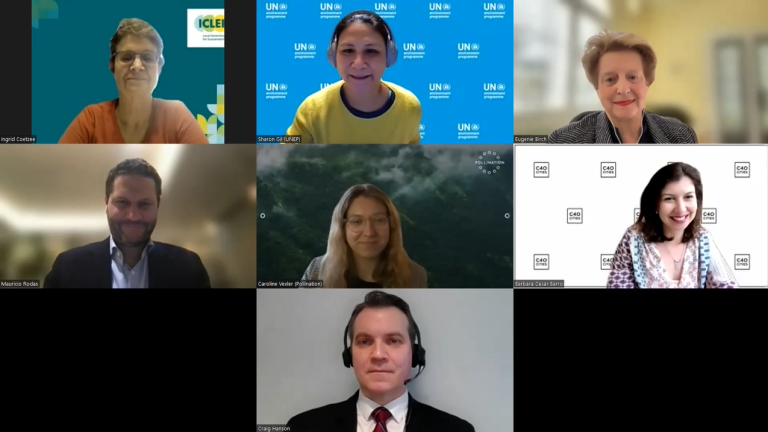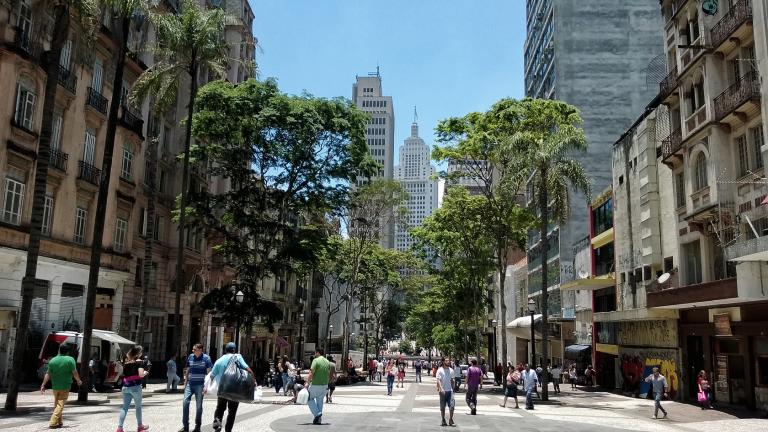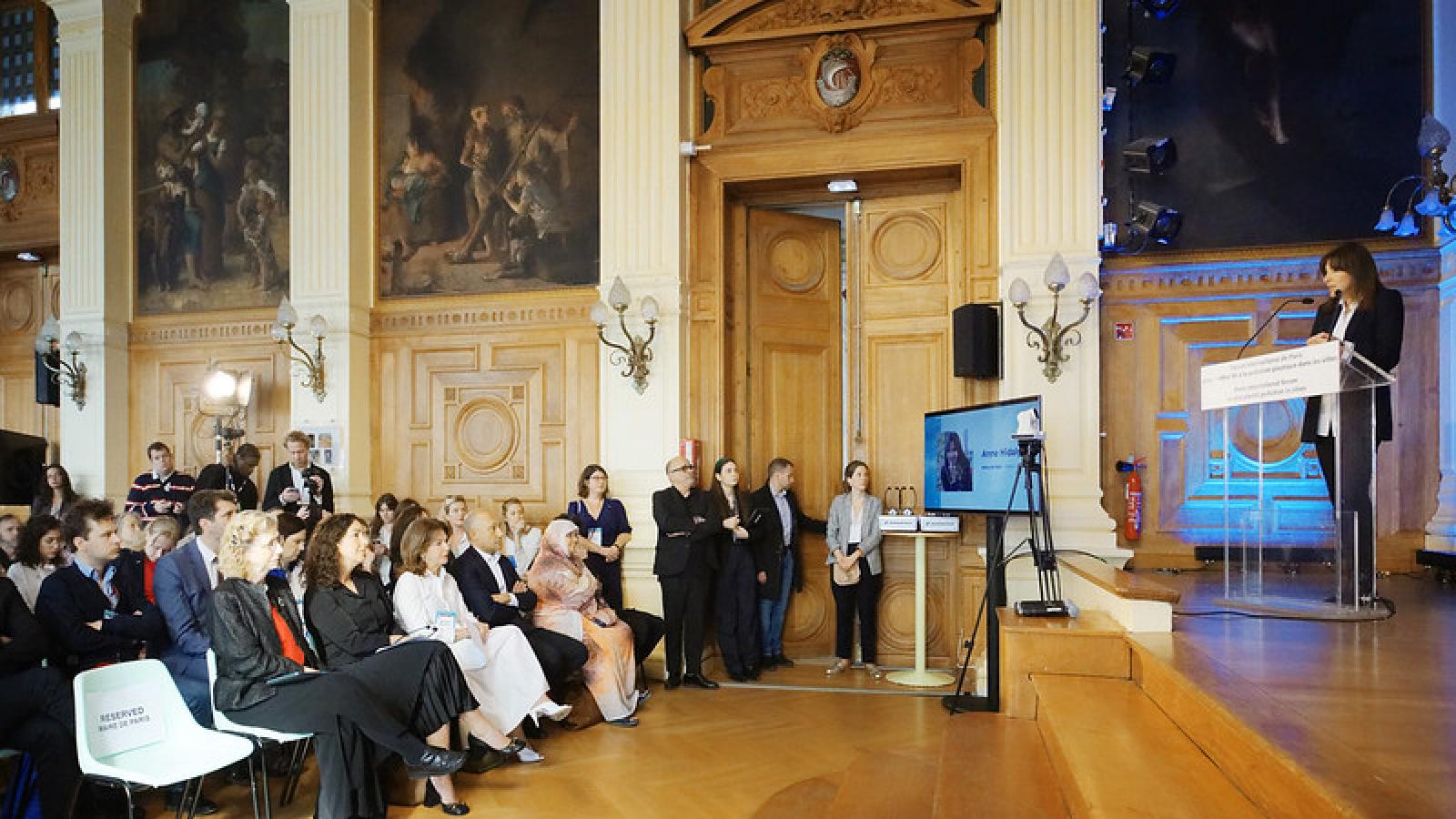宣传与参与
通过参加备受瞩目的国际平台,UrbanShift 提高了城市可持续性在全球气候议程中的重要性,并努力确保以自然为基础的解决方案和循环经济等关键主题得到优先考虑。
UrbanShift该计划的宣传工作旨在通过纽约气候周、联合国气候变化大会和世界城市论坛等国际平台,提高人们对可持续城市发展道路上的挑战和机遇的认识。该计划与 PEG 合作,在这些平台上优先考虑城市可持续发展议程,并为城市和国家利益相关者提供与全球受众分享经验的空间。 通过宣传工作,UrbanShift 为关键的地区和全球进程做出了贡献,如多边环境协定 (MEA)。它还致力于强调该计划核心主题的重要性,包括多级治理、地方气候行动和基于自然的解决方案。
探索UrbanShift 的宣传和参与工作

倡导
释放对自然的投资以实现公正的城市转型
本次网络研讨会与达沃斯世界经济论坛(WEF)年会同时举办,强调了环境署最新的 "自然融资状况 "报告的结论,并探讨了加快城市自然融资所需的内容。

倡导
结束城市塑料污染的巴黎国际论坛
UrbanShift全球市长和城市领导人围绕最大限度地减少塑料对地球的影响的解决方案的需要,举行了一系列重要讨论。

倡导
UrbanShift 在生物多样性缔约方大会第十五届会议上
生物多样性缔约方大会第十五届会议通过了2020年后框架,该框架为未来十年的生物多样性养护、保护、恢复和管理提供了路线图。阅读关于UrbanShift"参与会议 "的情况。

倡导
美洲城市峰会:在城市中建立与自然的复原力
在丹佛举行的美洲城市峰会的这次会议上,领导人和专家们分享了关于拉丁美洲城市基于自然的成功解决方案的观点,以及为抗灾工作增加融资的战略。

